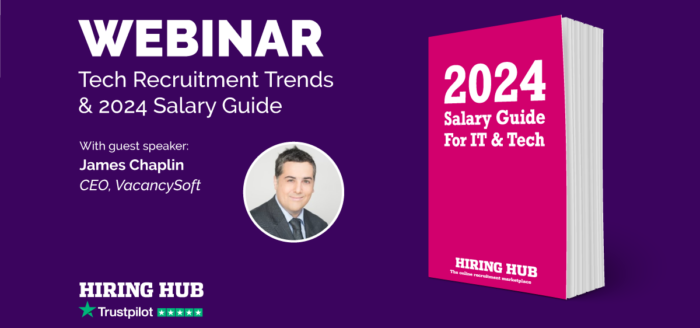
We know what it’s like, you’re working on your company’s budget for next year, referencing it against income and costs over the last 12 months and there, shouting at you from a little cell on your Excel spreadsheet, is the total spend on recruitment agency fees YTD. Ouch.
You read the number twice to make sure you’re not mistaken. You might check it’s pulling the correct numbers from the cells that feed it, too. For a moment, you wonder why it’s so large versus other figures on the P&L but you check yourself because, well, you and your company’s leadership team believes in the value of people.
People ARE your company. Talent is your competitive advantage, so you agree you should be investing in identifying and hiring the right folk, right?
People ARE your company. Talent is your competitive advantage
Sure you do. But, that number…
I mean, in a world where many costs are predictable and fixed, recruitment agency fees are unpredictable and discretionary, so forecasting expenditure is challenging. Particularly if you’re a growing firm and not just retro-hiring for attrition.
Worse, hiring managers can go rogue. You had Wendy from HR in your office only last week complaining that Mike, the CTO, was paying agencies 15% fees – and that wasn’t enough to snare top talent – while, Alex, the Sales Director was handing out 25% fees to the agency that took him on that skiing trip last year…
In a calm, idyllic world of carefully quantifiable spending and measurable returns, the company’s outlay on external recruitment fees can make prudent, sensible forecasting seem like a lesson straight out of a Harry Potter potions class.
What’s more, there is often minimal correlation between the service you receive and the price you pay.
So how do you get a grip of recruitment agency spend across the business and all its departments? Govern the process? Not in a bid to micro manage, but simply to get sight of – and control – of costs.
Accepting that recruitment is one of the most critical and (provided you hire the right people) transformational investments your company can make, and the ebb and flow of talent can be relatively unpredictable, there is an easier way to ensure maverick line managers don’t pay over (or under) the odds and spend doesn’t spiral.
(Well we probably wouldn’t have bothered penning this prose if it didn’t route back to our recruitment agency marketplace, but bear with us here…)
Imagine a world where you could standardise recruitment agency fees across the business – or departments – and have total clarity of costs once you’d made a decision to use a third-party supplier.
Imagine a world where you could standardise recruitment agency fees across the business…
Of course, you can do this to an extent with a Preferred Supplier List (PSL), which serve a purpose and help manage suppliers, but are far from perfect: you only see the candidates they can source from their narrow talent pool, so you’re restricting your company to hiring only the best candidates they can find, not the best candidates full stop. So why limit your business to only seeing talent from a handful of suppliers?
Hiring Hub’s recruitment agency marketplace acts as a gateway, connecting your hiring managers to a motivated supply chain of trusted, specialist recruiters.
You can use it to keep a grip on recruitment spend by saying that, sure, hiring managers can spend on recruitment agency fees outside of your PSL, but they must use Hiring Hub and set the fee (which for clarity you set upfront when uploading your vacancy) at XX%, or the same level that your PSL work at.
This way there’s no risk of Alex getting wooed by a retained headhunter that assumes an aura of superiority when they inform him of their 30% terms, that no one can find you the salespeople they can. Equally, your parsimonious CTO won’t be able to squeeze bottom-of-the-barrel agencies to work at 10% only see the candidates that your competitors have already rejected.
No. We built Hiring Hub to give clarity, transparency and peace of mind. It’s really very simple:
- Set a fee upfront that you’re willing to pay a recruitment agency
- Post your brief, which the team here can qualify and help you with
- Approve recruitment agencies who’ll submit their best candidates
- Review candidates, reject and/or interview and hire
- Pay the fee you set (or not if you don’t hire)
In short, it’s a neat way to quickly access a network of peer-rated, specialist recruitment agencies with the type of candidates your hiring managers are looking for, under universal terms of business (view them here) and at a fixed cost per hire you can agree internally.
So, recruitment spend isn’t quite the headache it once was.
Enjoy your budgeting, and click here if you’d like a quick demo of the marketplace.


